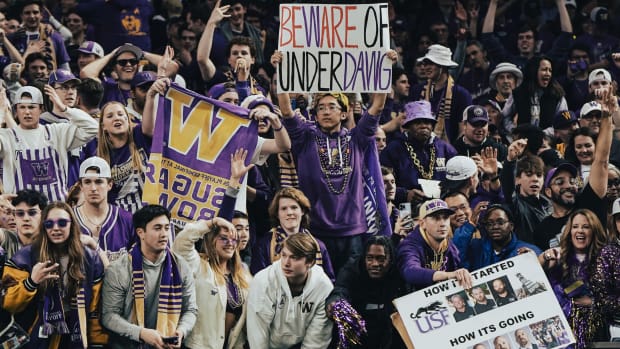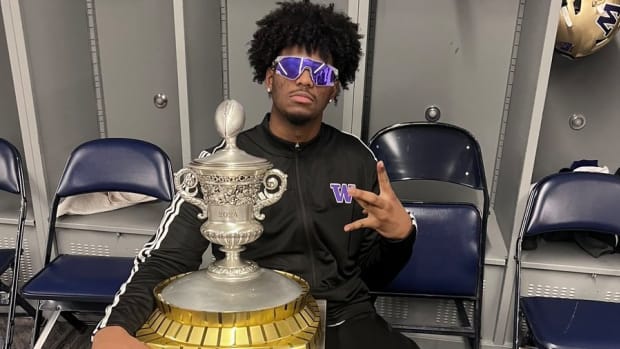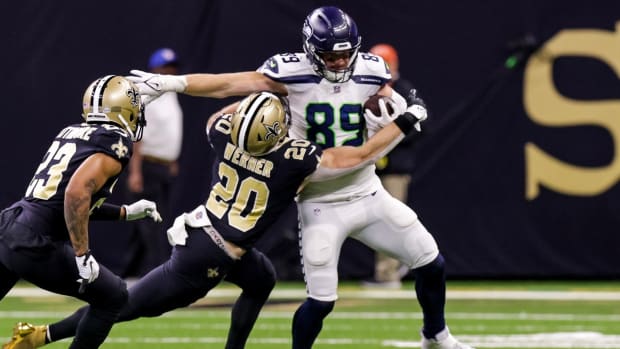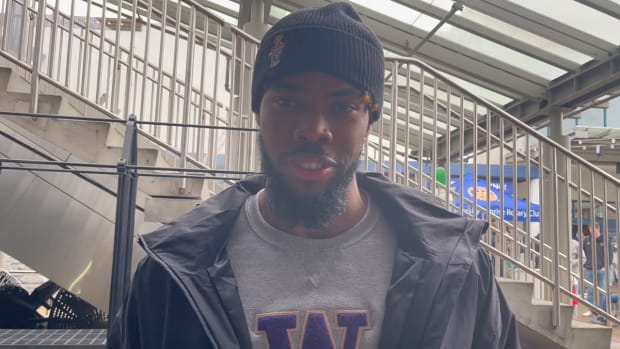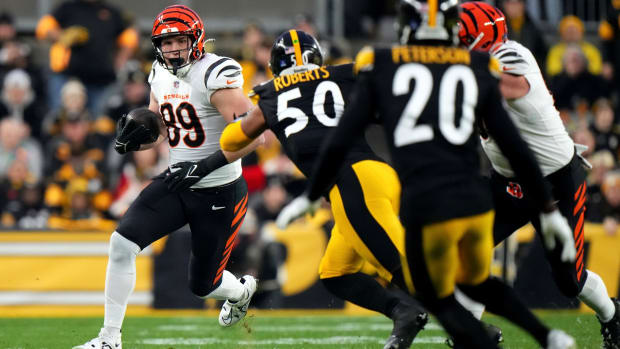Pandemic Puts UW Pro Prospect in Extra Innings, Waiting for Unknown Outcome
Stevie Emanuels and his younger brother Josh throw to each other three times a week at a grade school in Seattle's Eastside suburbs, on a soccer field.
They're not Little Leaguers.
They're high-grade baseball pitchers, idled by the ongoing pandemic. They're both tall, sturdy right-handers pursuing a pro career and a college scholarship, respectively.
One throws 95 to 96 miles per hour, the other's fastball closes in on 90 mph.
Their college and high school seasons came to an abrupt halt in March as the virus began to spread globally.
"It's tough to say life is normal," said Stevie Emanuels, a 6-foot-5, 210-pound starting pitcher for the University of Washington. "This time normally I'd be all over the country playing baseball."
So much has changed since baseball, and all other sports, not to mention most ways of life, got the hook.
The Major League Baseball draft on June 10 has been shortened from 40 rounds to five, dropping the number of potential selections from 1,217 the year before to 160 this time.
Emanuels, a UW junior and ranked 105th by Baseball America, was certain to be drafted before the pandemic. Now he's hoping for the best, thinking his rating might be enough for some team to call out his name. Still, a thousand players won't get drafted this time.
"It keeps things in perspective; you can't take anything for granted anymore," he said. "I was looking for this season to be potentially career-making and the opportunity to boost my draft stock."
Emanuels and other prospective pro baseball players, it seems, will receive added reminders of the changing landscape.
Minor-league teams everywhere stand to disappear with this lost summer, unable to recover and pay their bills. Pre-shutdown, baseball already was going to thin down the 160 affiliates and re-organize.
The number of lost teams could be considerably higher, with officials from two-dozen clubs telling Sports Illustrated's Robert Sanchez that they worry about closures and bankruptcies closing them down.
Fewer minor-league teams will mean fewer opportunities for players to move through the ranks and reach the big leagues. Development will be much more restrictive and less forgiving.
"I'm not sure it affects the first-, second- or third-year players," Emanuels said. "But the players who have been in the minor leagues a long time will be affected. It's a big deal for all those towns that for all they have are those teams. A lot of jobs will be lost. It's going to affect everybody in some way."
Meantime, Emanuels tries to stay in shape by working out in his parents' garage in Bellevue, Washington. Unlike a lot of his UW teammates, he has dumbbells, a squat rack, medicine balls and a treadmill to use at home.
He made the position change from closer to starter this spring but didn't get far. He could have used more time to show scouts what he's got in his new role.
That said, Emanuels was 3-1 with a 0.79 earned run average in the Huskies rotation, striking out 38 in 22 2/3 innings. He whiffed 13 batters in a six-inning stint against Fresno State, an 8-1 victory.
His brother Josh, two inches smaller and maybe 15 pounds lighter, played for Interlake High School and is entertaining scholarship offers, a process made more difficult by everyone forced to social distance and wait for a baseball resolution.
Come draft day, Stevie Emanuels will be seated on a couch at the family residence, hoping his phone rings, ready to return to college if it doesn't. The pandemic has muddled everything for baseball players like him.
"I wish I had a good answer for you," Emanuels said. "I like to think there's a lot of potential with me and the sky's the limit. But I'm prepared for anything to happen."
